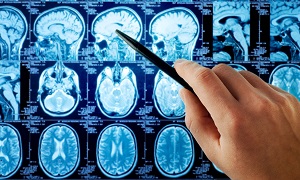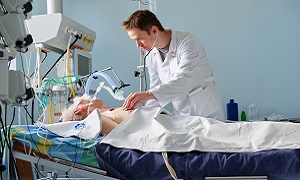Best Doctors in India for Brain Hemorrhage Treatment
Best Hospitals in India for Brain Hemorrhage Treatment
- City: Mumbai, India
Hospital Highlights:
- Fortis Hiranandani hospital was established in 2007.
- The hospital is an advanced tertiary care, multi-specialty hospital equipped with 149 beds.
- The hospital is equipped with a super ICU to provide emergency medical care to critically ill patients.
- The hospital is NABH accredited.
- The critical care facility in the hospital is augmented with the state-of-the-art facilities that facilitate speedier diagnosis and efficient monitoring.
- The hospital provides specialty medical services in cardiology, orthopedic science, pediatric science, neurology, diabetic care, urology, nephrology, ENT, obstetrics, gynecology, cosmetic surgery, bariatric surgery, neuro and spine care.
- City: Gurugram, India
Hospital Highlights:
- W Pratiksha Hospital, Gurugram, is one of the best hospitals in the NCR region. It is also a top hospital in India for IVF. Since its inception, the hospital has performed over 5500 successful IVFs. The hospital also specializes in gynecology.
- With over 20 years of experience in providing quality healthcare, the hospital is known as one of the most trusted and valued health providers in India.
- Equipped with world-class medical facilities and advanced technology, the hospital’s doctors and clinicians also have a track record of delivering excellent results. The hospital is also known for focusing on preventive well-being as much as on curative treatment.
- The hospital has earned the trust of its patients, by providing the best available treatments at affordable costs.
- City: Gurugram, India
Hospital Highlights:
- Paras hospital was established in 2006 and is the 250 bedded flagship hospital of Paras Healthcare.
- The is supported by a team of doctors of international and national repute.
- The hospital is NABH accredited and also the first hospital in the region to have a NABL accredited laboratory.
- The hospital provides specialty medical services in around 55 departments including Neurosciences, Joint Replacement, Mother & Child Care, Minimal Invasive Surgery, Gynecology and Obstetrics, Ophthalmology, Dermatology, Endocrinology, Rheumatology, Cosmetic and Plastic surgery.
- The hospital is equipped with state-of-the-art technologies.
- City: Kolkata, India
Hospital Highlights:
- Fortis Hospital, Anandapur, Kolkata is a world-class super-speciality equipped with the latest technologies in the medical world.
- The hospital is NABH accredited.
- This state-of-the-art facility specializes in cardiology and cardiac surgery, urology, nephrology, neurosciences, orthopaedics, digestive care, emergency care and critical care.
- The hospital, governed by integrated Building Management System (IBMS), has a pneumatic chute system, for quick vertical and horizontal transportation between floors, facilitating speedy transfer of patient specimens, documents, reports, and medicines to the concerned departments.
- The hospital also has a nephrology department with over 28 advanced dialysis units.
- City: Mumbai, India
Hospital Highlights:
- SL Raheja hospital is a 140-bed multi-specialty tertiary care hospital that is being managed by Fortis Healthcare Ltd.
- The hospital is a benchmark in healthcare and medical facilities in the neighborhood of Mahim & the western suburbs.
- L.Raheja Hospital, Mahim has one of the most effective ICU and Casualty care services.
- The hospital provides specialty medical services in Cardiology, Oncology, Neurology, Orthopedics, Mother & Child Care, and in Diabetes.
- City: Mumbai, India
Hospital Highlights:
- Wockhardt Hospitals were established in the year 1973, originally called First Hospitals and Heart Institute.
- Wockhardt Hospitals are super specialty health care networks in India, nurtured by Wockhardt Ltd, India’s 5th largest Pharmaceutical and Healthcare company.
- Wockhardt Hospitals is associated with Partners Harvard Medical International, an international arm of Harvard Medical School, USA.
- Wockhardt Heart Hospital performed India’s first endoscopic heart surgery.
- The hospital has a state-of-the-art infrastructure equipped with the latest technologies and modern equipment.
- It has special Centers of Excellence dedicated to the major specialties to provide hassle-free and high-quality clinical care.
- City: Gurugram, India
Hospital Highlights:
- The CK Birla Hospital in Gurugram is a NABH-accredited multi-specialty hospital.
- The hospital strives to increase the quality of healthcare by focusing on UK NHS nurse and midwife training requirements. Policies and practices derived from the National Institute for Health and Treatment Excellence (NICE) recommendations in the United Kingdom ensuring that a strong focus on safety, high-quality clinical care, and sanitation is maintained.
- The hospital’s cutting-edge technology and facilities allow for real-time communication and seamless collaboration among caregivers, ensuring accuracy and the best possible results. Those with foreign experience and accreditations make up part of the hospital’s team of clinicians.
- City: Ahmedabad
Hospital Highlights:
- As a member of the Apollo Hospitals Group, Apollo Hospitals International Limited, Ahmedabad is one of the most popular and sought-after medical facilities in Gujarat.
- Through its 6 Centres of Excellence and various affiliated branches, which cover all specialties and subspecialties, the hospital provides the most advanced clinical services.
- Since its inception in 2003, the hospital has been providing each patient with the most up-to-date medical equipment and state-of-the-art technology.
- With more than 150 successful organ transplants, including liver and renal transplants, the facility has been able to build a strong and extensive organ transplant program.
- In addition to performing 600 surgeries and caring for over 1800 patients on an IP basis, the hospital sees more than 18,000 patients on average in the outpatient department.
- With one of the biggest cardiology teams in the area, the hospital provides state-of-the-art regional care treatment in Cardiac Sciences.
- Additionally, the hospital offers a broad range of Neuro Interventional techniques to help stroke patients recover more quickly.
- City: Noida, India
Hospital Highlights:
- Jaypee Hospital is the flagship hospital of the Jaypee Group.
- This hospital has commissioned 525 beds in the first phase and has been planned and designed as a 1200 bedded multi-specialty facility.
- It holds the accreditation of the NABH and NABL.
- The hospital has state-of-the-art infrastructure equipped with the latest technologies and modern equipment like 64 Slice PET CT, Dual Head 6 Slice SPECT CT, Gamma Camera, and Da Vinci Robotic Surgery for comprehensive robotic surgical solutions.
- It has special Centers dedicated to the major specialties to provide hassle-free and high-quality clinical care.
- City: Mumbai, India
Hospital Highlights:
- Reliance Hospital is one of the best super-specialty care hospitals in Navi Mumbai.
- The main purpose of this hospital is to become a trustworthy place for the best health and hope for society. The hospital is well connected to the suburbs of Mumbai and Navi Mumbai.
- The hospital has various specialty departments, viz., Accident & Emergency, Anesthesiology, Dental Services, Dermatology, Diabetology, Dietetics Nutrition, Endocrinology, ENT, Gastroenterology, General Surgery, Gynaecology And Obstetrics, Hepato Pancreato Biliary Surgery, Infectious Disease, Internal Medicine, Interventional Radiology, Laboratory Medicine, Minimal Access Laparoscopic Surgery, Nephrology, Neurosciences, Opthalmology, Orthopaedics, Paediatrics, Pain Management Palliative Care, Physical Medicine Rehabilitation, Plastic And Reconstructive Surgery, Psychiatry, Pulmonary Medicine, Radiology, Rheumatology, Transplant, Urology Andrology, Vascular Surgery
Brain Hemorrhage
Brain hemorrhage is a type of stroke that is caused when an artery in the brain bursts. This can lead to localized bleeding in the surrounding tissues. This kind of bleeding is known to kill brain cells.
People, who generally experience a brain hemorrhage, have symptoms similar to that of a stroke, and they can also develop weakness on one side of their body, difficulty in speaking or experience a sense of numbness.
Symptoms
If you are exhibiting any of the following symptoms, then you might be having a brain hemorrhage:
- A sudden severe headache
- Seizures with no history of seizures previously
- Changes in vision
- Numbness or tingling
- Weakness in an arm or a leg
- Nausea or vomiting
- Decreased alertness or Lethargy
- Difficulty speaking or understanding speech
- Difficulty in swallowing
- Difficulty reading or writing
- Loss of fine motor skills, such as hand tremors
- Loss of balance
- Loss of coordination
- Abnormal sense of taste
- Loss of consciousness
However, it is notable that many of these symptoms are also often caused by conditions other than brain hemorrhages.
Causes & risk factors
The most common cause of a brain hemorrhage is generally elevated blood pressure. Over time, high blood pressure can lead to the arterial walls getting weakened, which can lead to a rupture. When this occurs, blood collects in the brain, which can cause symptoms of a stroke.
Some of the other causes and risk factors of a brain hemorrhage include:
Head Trauma- For people younger than the age of 50, injury is the most common cause of bleeding in the brain.
Aneurysm- This is a weakening in a blood vessel that swells. It can burst and bleed into the brain, leading to a stroke.
Blood Vessel Abnormalities- Weaknesses in the blood vessels in and around the brain, might be present at birth, and they can only be diagnosed if symptoms develop.
Amyloid angiopathy- This is an abnormality in the walls of the blood vessels that can sometimes occur with high blood pressure or aging. It might lead to several small, unnoticed bleeds before it leads to a large one.
Liver Disease- Generally, this condition is associated with increased bleeding.
Blood or bleeding disorders and brain tumors can also increase the risk of a hemorrhage.
Diagnosis
If any kind of stroke is suspected, it is important to perform an evaluation immediately. The examination might reveal evidence of brain injury with weakness, slurred speech as well as the loss of sensations. A radiology examination such as a CT scan or an MRI is also sometimes necessary. It can help to highlight various features and locations of brain bleeding. If bleeding inside of or around the brain is noted, then your doctor might recommend further testing, to determine the cause of the bleeding.
This additional testing might help in determining if abnormal blood vessels are present as well as the next step in diagnosis or treatment.
Treatment
Close monitoring is very essential for patients with bleeding inside the brain. Early treatment can include stabilizing blood pressure and breathing. A breathing assist machine, i.e. a ventilator, can be required as well, to ensure that enough oxygen is supplied to the brain as well as other organs.
Intravenous access is also required so that fluids and medications can be given to the patient, especially if he/she is unconscious. Sometimes specialized monitoring of heart rhythms or pressure inside the skull as well as blood oxygen levels are also needed.
Once the patient is stabilized, then the doctors can determine how to address the bleeding. This process generally takes place rapidly. The decision of performing surgery is based on the location and the size of the hemorrhage. Surgery is not required for all patients with intracranial hemorrhage.
There are also various medications which can be used to help decrease swelling around the area of the hemorrhage.
Prevention
Since the majority of brain hemorrhages are associated with certain risk factors, you can minimize the risk in the following ways:
- Treat your high blood pressure- According to studies, 80% of cerebral hemorrhage patients have a history of high blood pressure. The most important thing is to control it through exercise and proper diet and medication.
- Don’t smoke.
- Refrain from using drugs- Drugs such as cocaine can increase the risk of bleeding in the brain.
- Drive carefully- If you are driving a four-wheeler, remember your seat belt. If you are driving a two-wheeler, remember your helmet.












